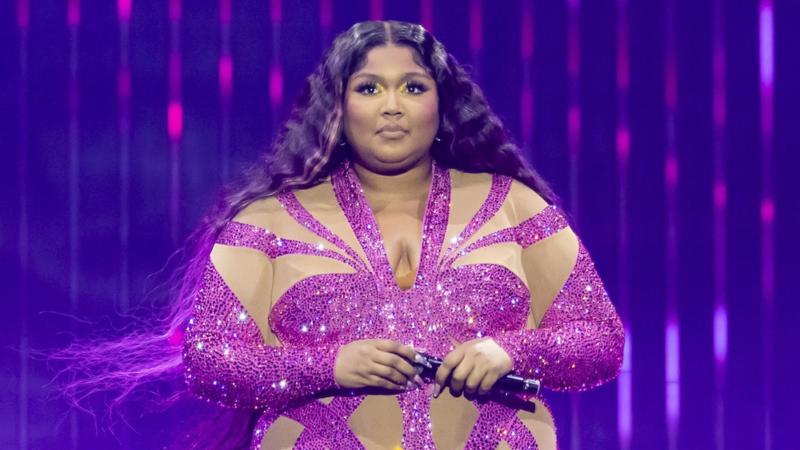Since her debut in the music industry, Lizzo has proved to have some thick skin. She has received criticism on everything from her weight to her fashion choices.
Now, the “About Damn Time” singer graces the cover of Vanity Fair’s current November issue. Lizzo announced the cover with an Instagram post, captioned, “YOUR COVER GRRRL – @vanityfair.” On it, she wore striking floor-length red fur and matching platform boots.
View this post on Instagram
As confident as ever, in the interview the classically trained flutist talked about the one jab that gets to her the most.
“I am not making music for white people.” Lizzo, born Melissa Jefferson, told Vanity Fair that this was “probably the biggest criticism” she has received. Critics have alluded that her genre of bubblegum pop mixed with R&B makes her a sell-out.
During her interview, she continued to elaborate, saying, “It is such a critical conversation when it comes to Black artists. When Black people see a lot of white people in the audience, they think, ‘Well, this isn’t for me; this is for them.’ The thing is, when a Black artist reaches a certain level of popularity, it’s going to be a predominantly white crowd.”
Although the faces in the crowd may lack melanin, Lizzo was adamant about the perspective of her artistry as a Black woman.
“I am a Black woman, I am making music from my Black experience for me to heal myself from the experience we call life.”
The Grammy-winning artist acknowledged that this isn’t anything new in the music industry, especially with Black artists who can’t be placed in boxes of traditional genres.
“This has happened to so many Black artists: Diana Ross, Whitney, Beyoncé.… Rap artists now, those audiences are overwhelmingly white. I am not making music for white people.”
Lizzo continued with the notion that her upbeat music is a form of rebellion against what is traditionally expected of Black artists.
“If I can help other people, hell yeah. Because we are the most marginalized and neglected people in this country. We need self-love and self-love anthems more than anybody. So am I making music for that girl right there who looks like me, who grew up in a city where she was underappreciated and picked on and made to feel unbeautiful? Yes. It blows my mind when people say I’m not making music from a Black perspective — how could I not do that as a Black artist?”
Lizzo’s rebellion doesn’t stop with her music. Her open body positivity and fearless self-love have made her a target for people with opposing views.
As Blavity previously reported, rapper Kanye West sat down with Fox News TV host Tucker Carlson and stated that “Lizzo is being used as a pawn to aid in the ‘genocide’ of the Black community.”
“When Lizzo loses 10 pounds and announces it, the bots — that’s a term for, it’s like telemarketer callers, like on Instagram — they attack her for losing weight because the media wants to put out a perception that being overweight is the new goal when it’s actually unhealthy,” West told Tucker.
Unbothered by Ye or the other haters, Lizzo ended her interview with her appreciation of the acceptance she feels from Black women.
She stated that internet criticism bothered her until she got into the “real world” and connected with Black women who told her that her music inspired them. The more her music became mainstream, the more she started to connect with people who see her for who she really is: “Not ‘that girl, she’s always happy, it’s not real,’ but instead, ‘She’s really good and her music is good, believe her.'”
The pop star added, “That is what I’m moving into now, and it’s a beautiful place to be. I finally feel I can relax and have a cocktail.”

